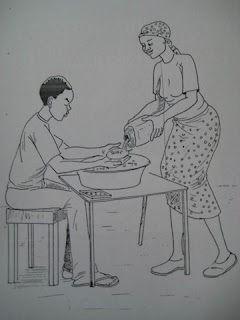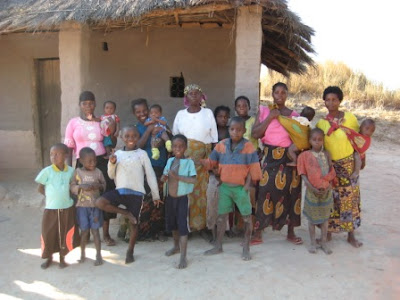
Chisenga has been showing me around some of the villages he works in. Today we are walking through Lunga village. From what I have seen so far, Lunga is making great progress with the project. The densely populated village has a number of families with completed latrines and the young sanitation technician is enthusiastic to finish many more latrines this year.

We were standing at the well when Chisenga said “Oh, there is a latrine just over there. Let’s go and see it.” Chisenga led me around a house and through a small, dried up garden. When I saw how close the latrine was to the well I thought, “Oh crap”. Chisenga chatted to the sanitation technician about the owner of the latrine while I took a few pictures and made some estimations. The latrine was no more than 20 metres from the well. In order to avoid contaminating the well with fecal matter, a well shouldn’t be within 30 meters of a latrine, so this is obviously a problem.
This is a typical day out in the field for me. At least once a day I will observe how the project is not being implemented properly, and possibly doing more harm to the locals. (I say possibly because in the example of Lunga, the water the villagers are using might already be contaminated).
At first the failures made me feel extremely frustrated and sad. I thought that my role in the project was hopeless and I couldn’t help in anyway. Now, I am comfortable with the failure, or at least my role in all of it. My role is to gather lessons about why things aren’t working, and hopefully these lessons will be used to help things in Milenge, or other future projects.



































